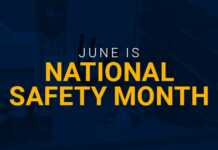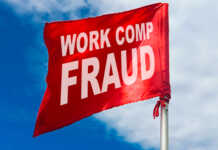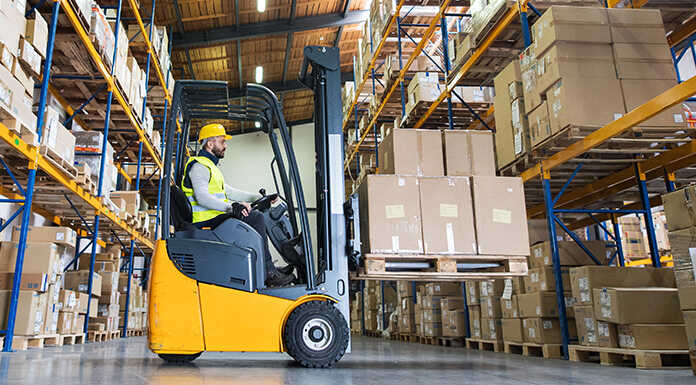Violations related to Powered Industrial Trucks (PIT) ranked as #7 on OSHA’s Top Ten Most Frequently Cited Safety Violations in 2022. What exactly does OSHA consider a Powered Industrial Truck? Since the OSHA compliance standard is somewhat vague, OSHA has attempted to clarify by creating a list of the seven classes of PITs:
- Electric motor rider trucks (electric forklift)
- Electric motor narrow aisle trucks (warehouse material movers)
- Electric motor hand trucks or hand rider trucks
- Internal combustion engine trucks (solid/cushion tires)
- Internal combustion engine trucks (pneumatic tires)
- Electric and internal combustion engine tractors
- Rough terrain forklift trucks
The common factor among all the vehicles listed above is they are all designed to transport materials. On the other hand, vehicles designed specifically to transport people, such as golf carts, are not considered PITs and do not fall within any specific OSHA standard of PITs.
PITs have been on the top ten list of most frequently cited safety violations every year since 2004. Employers are responsible for ensuring safety rules are created and followed by employees. The nine most cited forklift violations include the following:
- No Operator Certification. Forklift certification is required for each operator to be eligible to drive a lift. Training requirements are identified in the OSHA standard. That training must consist of instruction – classroom (lecture-based) and practical training – on the safe and proper operation of the PIT, the hazards of operating the vehicle in the workplace, and the requirements of the OSHA standard on PITs. ICW Group offers a forklift train-the-trainer class with a live instructor to help with this requirement.
- Driving With an Elevated Load. An elevated load can cause the forklift to tip over or the load to fall. To maintain safe load composition on the forklift, the load’s center of gravity should be as low to the ground and as close to the front wheels as possible, with the forks approximately four to six inches from the ground and the mast tilted back to stabilize the load.
- Not Following Speed Limits. Driving too fast can cause the forklift to tip over and limit the driver’s ability to stop to avoid pedestrians, obstacles, or other forklifts. Require employees to follow safety protocols such as maintaining a safe speed and slowing down on wet or slippery floors when crossing aisleways, turning, or ascending or descending grades.
- Not Steering Clear of the Loading Dock. Driving too close to the loading dock can cause the forklift to tip or fall off. Clearly and conspicuously label each area the operator needs to avoid, enforce safety rules, and hold meetings in which employees can voice safety concerns and find ways to reduce risks while operating a PIT.
- Not Performing Pre-Operation Inspections. A daily pre-operation check is required by OSHA at the start of each shift. Inspections help prevent accidents by identifying regular maintenance needs and uncovering minor issues before they become costly repairs. Keep an inspection checklist on the forklift and train employees on inspection requirements. Post signs to remind employees to conduct daily inspections.
- Not Providing Refresher Training. Forklift Operators must receive refresher training every three years and sooner if they are involved in an accident, near-miss or when reported for reckless behavior. Operators may also require additional training when the type of forklift being operated changes if a change in the workplace affects safe operation.
- Not Removing Defective Trucks. If a maintenance issue is discovered with a PIT, it should not be used. Lock and tag the defective truck out of service until maintenance can be conducted.
- Not Using the Right Safety Equipment. Personal Protective Equipment such as safety shoes, protective eyewear, hard hats, and seat belts reduce the risk of injuries. Provide eye wash stations if you use electric forklifts. Create a list of required safety equipment and ensure your business has what is needed.
- Not Providing Adequate Fall Protection. A Personal Fall Arrest system is required to be worn by employees operating Class II narrow aisle and order pickers. Train employees in safe use and ensure the body harness and lanyard are securely anchored to prevent an employee from hitting the ground if they fall.
PIT operators can be trained by employers in-house, so long as the trainer has practical hands-on knowledge, training, and experience operating PITs as required by the OSHA standard. If you need assistance with training and certifications, ICW Group offers free virtual forklift train-the-trainer courses. Trainers will learn how to train, evaluate, and certify forklift operators as specified by OSHA. In addition, ICW Group offers a Powered Industrial Truck Safety program wizard to assist you with your Federal OSHA compliance efforts.
If you have any questions or need assistance with developing your program or registering for the train-the-trainer course, please contact ICW Group’s Risk Management Services, and we will be more than happy to assist you.

















